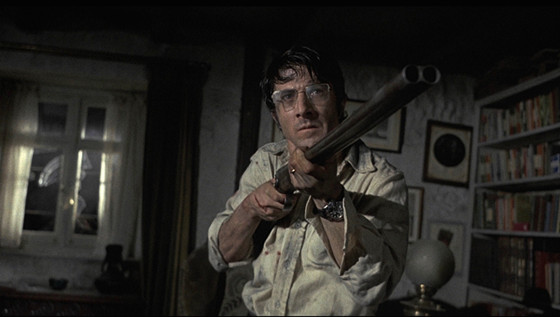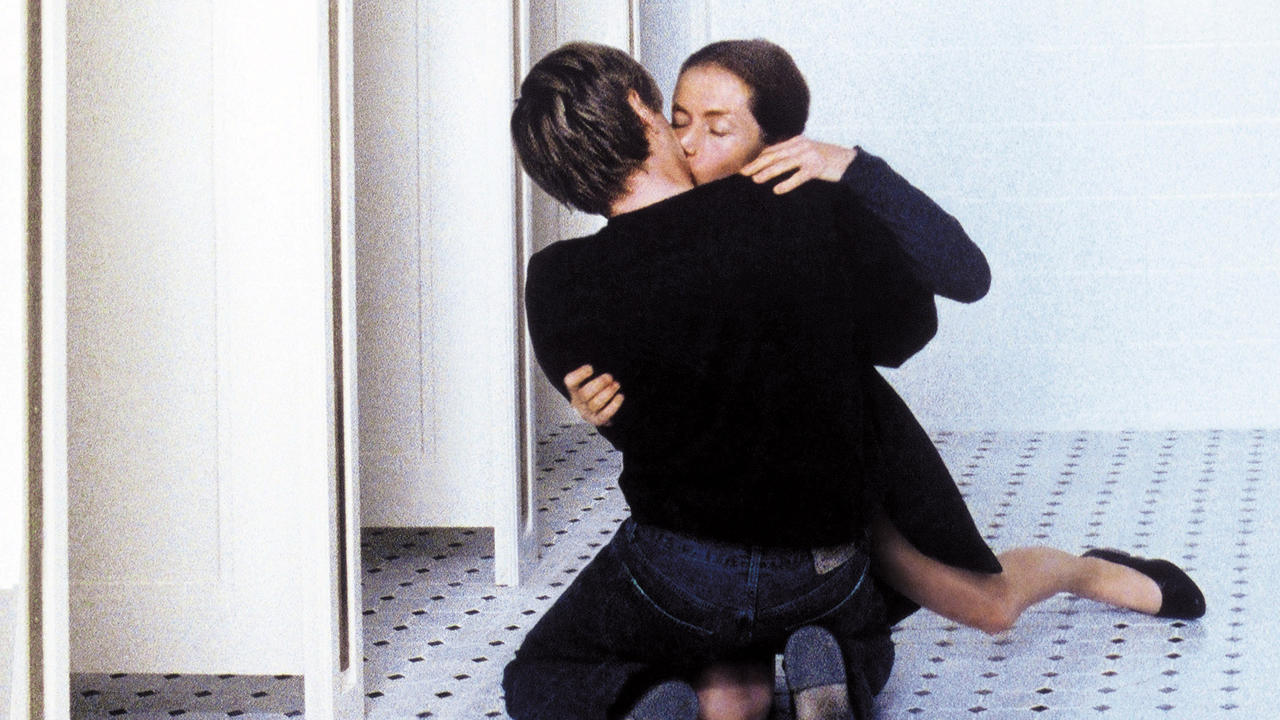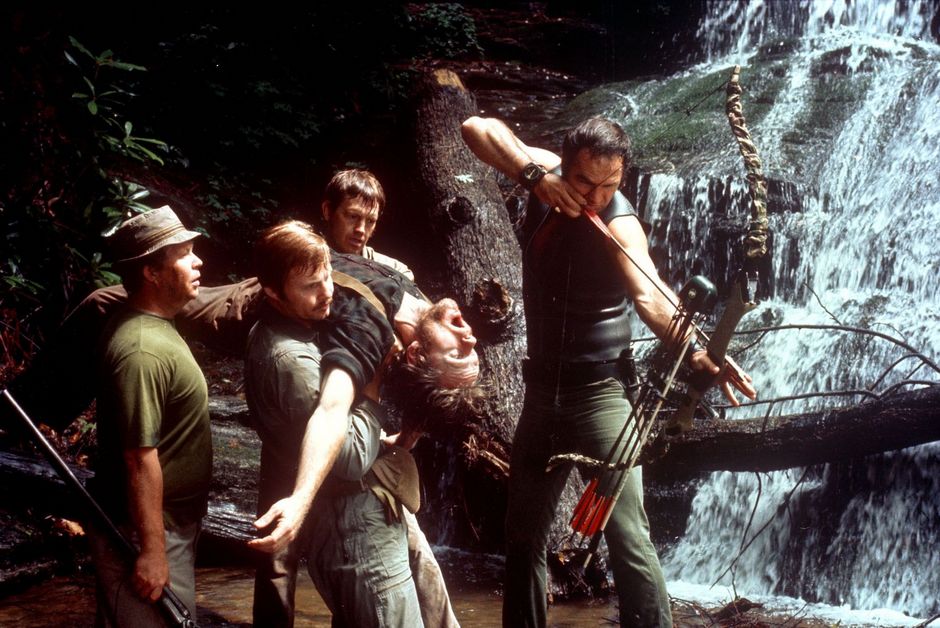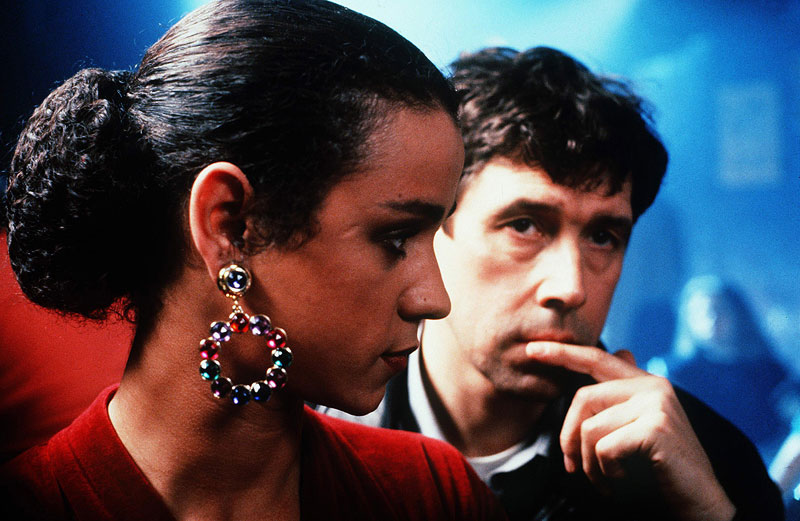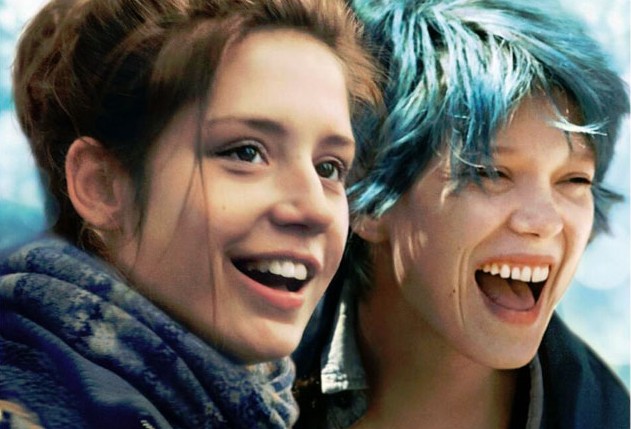8. Eyes Wide Shut (1999)
Time has had to catch up with what may well be Stanley Kubrick’s final masterpiece. Opinions differ wildly on Eyes Wide Shut’s pacing, the inability of its recently deceased director to follow his custom of recutting the film after its first screenings, or its rank on Kubrick’s canon.
But one thing has always been unanimous – the film is an audacious spectacle. Strangely hypnotic on both an audiovisual and character conceit level, the film almost trudges along, with one extended sequence after another aimed at unearthing the nature of lust. Sound good for a family night? Hardly.
But it does have its value. An early encounter with a Hungarian aristocrat sets forth the ideology of the piece effortlessly. The bedroom disagreement that serves as the catalyst to the film’s plot is an acting masterclass, and a worrying reminder of Stanley Kubrick’s obsessive rehearsal etiquette.
Often forgotten is a breathtakingly desperate scene between Cruise’s Bill Harford and the daughter of a deceased patient, a sequence that almost represents a summation of the film within itself. There is far more emotion laid bare in Eyes Wide Shut then there is flesh.
Still, be wary of the discomforting array of flesh.
7. Straw Dogs (1971)
Quite simply, this is a film in which a woman is forcefully raped, and she may well have enjoyed the experience. That is all that is required to justify the film’s appearance on this list. Now let’s turn our attention to what is brilliant about the film.
We have here which could easily be misshapen into a convenient excuse for an exploitation vehicle. An American mathematician is met with animosity when he takes a working holiday to his British girlfriend’s conservative hometown. The rivalry with the villagers for his wife’s affection soon turns violent. It seems like the stuff of second rate horror, indeed.
But, what the 2011 remake of Straw Dogs failed to recapture, is that the real animosity of the film exists in the unspoken tension between newlyweds Amy and David. Susan George plays Amy with a delirious ambiguity, at times simply mischievous, at times unfulfilled, and at other times downright suicidal in her intent. The notion that David and Amy have brought the ensuing violence upon themselves is the most fascinating facet of the film.
Much has been made of the right wing implications of David’s eventual rebirth into violence, but, as the climax of the film represents such an acting masterclass for Hoffman, the film appears more the story of the final chapter of a broken marriage than conservative propaganda.
Highly recommended.
6. The Piano Teacher (2001)
Love is portrayed as an almost universally bizarre force in this curio from curio master craftsman Michael Haneke. Even amidst the odd peer group that is Haneke’s filmography, this film appears strange. The story of Erika, a dangerously suppressed piano teacher in Vienna.
Divorced from the city’s passion, she is an emotionless spinster whose life centers around work, her living arrangements with her controlling Mother, and the occasional dalliance in pornographic movie theatres. Yet, when piano student Walter decides to seduce Erika, her life becomes an experiment in voyeurism that looks likely to become sinister at any moment.
A a filmmaker, one of Haneke’s strengths lies in refusing to provide easy answers. The Piano Teacher’s conclusion is stark, even bleak. It states clearly that mental illness is not easy cured, that Hollywood often oversimplifies in its conclusions. If Erika enters the film with deep seated issues, so too will she leave it that way.
Much is learned, but not all. With Haneke, there are no entirely happy endings, just fitting conclusions. But, the ambiguity does not make for easy viewing, and certainly isn’t recommended for family viewing. But, Isabelle Hupert is outstanding, and the film is as powerful as it is baffling.
Yet, hockey rinks are certainly no place for encounters, as your parents will no doubt inform you.
5. Last Tango in Paris (1972)
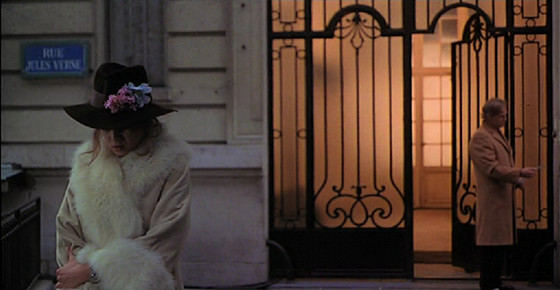
Quite simply of the most wandering indulgences in narrative cinema. This is a film that has the audacity to actually spend its opening half hour teasing you with the notion that it may actually contain an intelligible plot. From there, we are left in the cruel, confused world of two lovers bent on self-destruction through the medium of each other.
Marlon Brando and Maria Schneider are magnificent as the incendiary lovers Paul and Jeanne. Paul, an ageing hotelier and Jeanne, a naive virginal presence, give to and take from each other equally. And, we follow them down a long, vicious path.
Brando’s improvisations are so ludicrous they verge on the inspired. Sadly, the intensity of the occasional sexual violence left permanent psychological damage on Maria Schneider, who has claimed to have felt “raped” by Brando. The idea of the inescapability of love has rarely been explored so agonisingly.
The film is a downer, the structure is non-existent; that’s precisely the point. It is difficult to know whether any real insight can be gleaned from the film, but the film will leave its mark as an experience imposed upon your consciousness. You may think twice before entering into a relationship.
Anyone who watches this with elder relatives deserves a medal of valour.
4. Deliverance (1972)
No list of this kind would be complete without Deliverance. The image of a toothless simpleton with lust written all over his face will never fade from the public consciousness. The image of a partially disrobed Ned Beatty scrambling unsuccessfully for his life whilst hearing the words “boy, you look just like a hog”, is frightful even to consider for a moment.
And, then, we have “squeal like a pig boy.” For its part, it is possibly the most obscene line to have a ubiquitous presence on lists of iconic film lines. These are murky waters indeed. It is a wonder that the film works at all, let alone bear the title of “classic.”
Yet, the film is utterly brilliant. Brimming with iconic imagery that burns its way into the viewer’s psyche, and making tremendous use of our collective fear of the unknown, the film seems effortlessly effective.
As a deconstruction of masculinity, it is superbly deft. Burt Reynold’s Lewis is the impossibly macho alpha male, Jon Voigt’s Ed the institutionalised product of the middle class, and Ned Beatty as the oafish and charming Bobby, the true victim of the piece. They form quite the trio when things turn grim, more innocent than they thought themselves to be and utterly out of their depth. There is no doubt that the source novel made its points about masculinity in times of tragedy well.
Although, be wary, just because the rape scene is part of a larger tapestry doesn’t mean that it isn’t horrific.
3. The Crying Game (1992)
What begins as a quaint British love story becomes, rather iconically, something so much more in The Crying Game. Arguably Neil Jordan’s masterpiece, this film does a magnificent job of subverting the Cinderella story archetype. Of course, many forget that the film also has a wartime aspect, its opening scenes dealing with Fergus’ (Stephen Rea) Irish Republican wartime exploits.
The murderous nature of the opening scenes, however, manages to not distance us from fergus so much as it does establish him all the more as a man in need of affection. This is a difficult assignment that the film succeeds with fleetfooted ease. And, so, at the strange instruction of a wartime victim, Fergus is off to meet the mysterious Dil.
This is a film that is certainly best viewed without prior research as to its plot or content. It is a film best experienced in ignorance to what has become a most discussed twist. However, shock value aside, what makes the film’s plot twist shocking is the intimacy forged between Fergus and Dil prior to this. The film is the work of intense incite, it is a mature film for mature audiences.
You could say that emotions are the most graphically elements on display here – though many would argue otherwise in light of more literal forms of exposure. Another aspect to be commended is the maturity with which Dil and Fergus decide to part, ambiguous as to their futures but with the promise that there are few hard feelings. Indeed, there is a lot of hope to be taken from this maudlin film.
Dare you find out what this film is best remembered for?
2. Blue is the Warmest Color (2013)
A chance meeting on a street leads to an erotic odyssey of vulnerability and joy in Abdellatif Kechiche’s masterpiece. Such is the film’s naturalism that its appeal is virtually impossible to describe. Suffice to say that this is an acting masterclass seldom equaled, with two young actresses providing more in method than any textbook could illustrate.
Adele Exarchoupolis’ facial expressions say more than many a novel, with high school bathrooms, park benches, and family dinner tables providing the stage for an overwhelming humanity. The look on Adele’s face as a girl breaks her spirit in a toilet early in the film, or her embarrassment as Lea informs her parents that Adele hates shellfish, these are moments virtually too rich to describe.
Kechiche’s directorial style certainly strived for realism. Adele’s character is only named so because it is the real name of actress Adele Exarchoupolos, and had to be kept because her director would continue to film her between takes, at which point crew members would refer to her as “Adele”. The director would fil his stars as they slept and ate, nothing was off limits. Candid, indeed.
So, what’s the catch? Why is this sensitive film off limits to parents? One word – sex. The sex scenes in this film are not simply uncomfortable, they are excruciating. To refer to them as awkward viewing is simply too big an understatement.
During a near ten minute scene, actresses Lea Seydoux and Adele Exarchoupolis express their characters’ love in ways that will make you squirm in your seat, and perhaps even look away. It is as primordial as cinema gets. Those who say the film in theaters will notes the awkward giggles, and knife edged silences. It must be seen to be believed.
How brave do you feel?
1. Salo: Or the 120 Days of Sodom (1975)
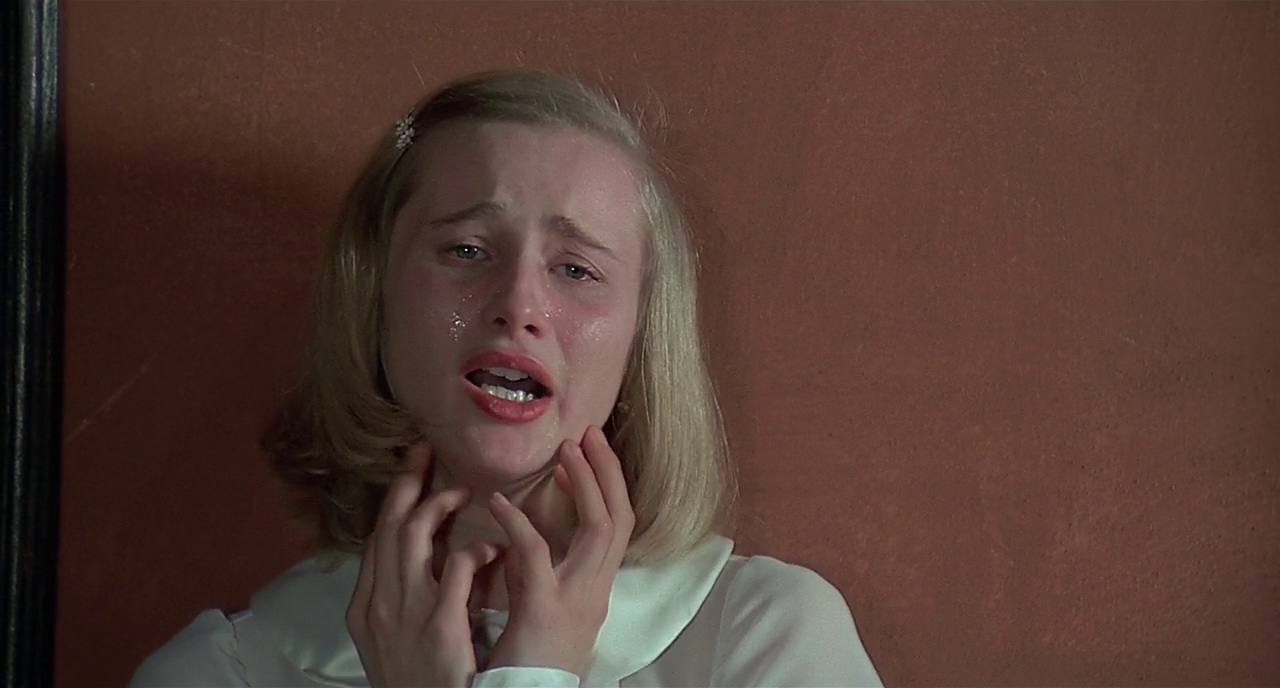
Salo is not a controversial film, it is the controversial film. It is an orgy of filth, perversion, and fearlessness that horrifies with every scene. It is virtually impossible to sit through in any kind of comfort. Feces is digested, young boys are married off to grown men, women celebrate childhood abuse. The mind boggles.
It is almost beyond verbal description, you must watch it for yourself in order to believe. Suffice to say that director Pier Paolo Pasolini had a seething hatred of Fascism, because his critic of the abuse of power in Salo, Italy in 1944 under Mussolini is perhaps the most absurdly purposeful satire in cinema history.
Loosely, the film centers around four cornerstone men of power in the Italian state – a Duke, a Bishop, a Magistrate, and a President, who, having married each others daughters, decide to kidnap eighteen teenagers and torture them for four months in a stately home in Salo. This is the film’s plot, though it holds little significance for the viewer once the sadism begins.
Among the “highlights” are Elsa De Giorgi’s monologues during the “circle of shit”, in which she gets dressed in her best to tell stories of childhood abuse and murder. More hideous still, is the “marriage” of the camp runners to young boys of their choosing, and a wedding meal of feces by means of “celebration”.
Why watch this? Well, nobody can blame those who loathe the film. But, Pasolini is not shallow, and he does not make film’s for the sake of popcorn entertainment. This is about the indulgence of the upper class, the superiority of the rich, and the abuse of power that all those in power fall victim to in some form. Indeed, the film even ends on a hopeful note of change, for those who manage to watch it to the end, that is.
Intrigued? Then seek this film out by all means. It has curious virtues. But, do not watch Salo with your parents, under any circumstances. Simply do not.
Author Bio: Ross Carey is a Film Studies graduate from County Cork In Ireland. He is an award winning short filmmaker and is in the midst of writing his debut feature film. Before joining Taste of Cinema he ran a popular blog entitled “Kino Shout! Films”. He will discuss the subject of film at any opportunity.

